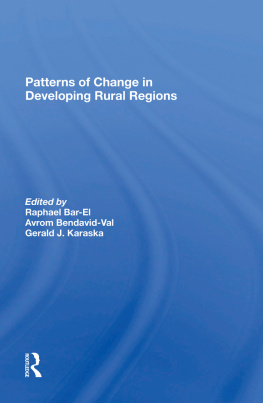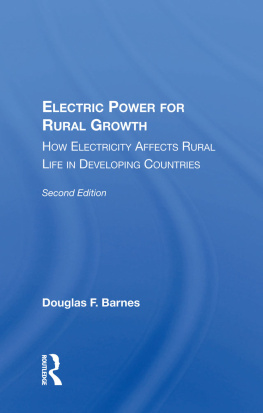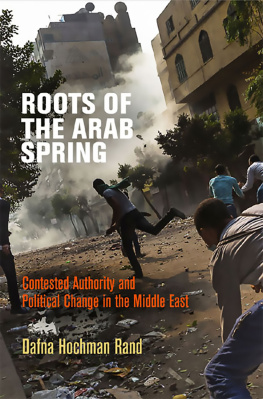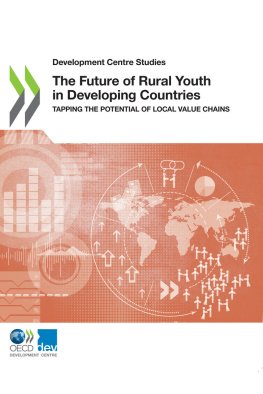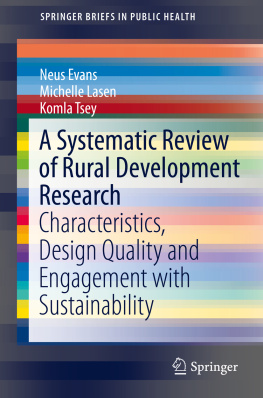Patterns of Change in Developing Rural Regions
About the Book and Editors
Development specialists often overlook the feet that the towns of a rural region play as essential a role in the region's economy as does agriculture, and they design and implement broad strategies without due recognition of the unique and dynamic character of each individual region. Proper analysis requires consideration of the changing nature of rural regions and the principal agents of change. The contributors to this volume argue that development strategists should focus on processes rather than on products by taking the nonfarm aspects, as well as the farm aspects, of rural development into account and by recognizing that land, labor, water, and technology do not alone lead to balanced regional and agricultural development. The analytical approaches presented in this book incorporate wide-ranging variables from the urban space of rural regionsmarkets, towns, service industries, and organizationsthat have major impacts on the rural regional economy. These methodologies aim at improving rural regional development processes.
Raphael Bar-El is an economist at the Settlement Study Centre and a professor at Ben-Gurion University. Avrom Bendavid-Val is an international consultant in the field of regional development planning; he is currently on assignment as an economist with the Settlement and Resource Systems Analysis Project at Clark University. Gerald J. Karaska is professor of geography and director of the Settlement and Resource Systems Analysis Project at Clark University.
Published in cooperation with the Settlement Study Centre (SSC)
Patterns of Change in Developing Rural Regions
edited by Raphael Bar-El ,
Avrom Bendavid-Val ,
and Gerald J. Karaska
First published 1987 by Westview Press
Published 2019 by Routledge
52 Vanderbilt Avenue, New York, NY 10017
2 Park Square, Milton Park, Abingdon, Oxon OX14 4RN
Routledge is an imprint of the Taylor & Francis Group, an informa business
Copyright 1987 by Taylor & Francis
All rights reserved. No part of this book may be reprinted or reproduced or utilised in any form or by any electronic, mechanical, or other means, now known or hereafter invented, including photocopying and recording, or in any information storage or retrieval system, without permission in writing from the publishers.
Notice:
Product or corporate names may be trademarks or registered trademarks, and are used only for identification and explanation without intent to infringe.
Library of Congress Cataloging-in-Publication Data
Patterns of change in developing rural regions.
(Westview special studies in social, political,
and economic development)
1. Rural developmentDeveloping countries.
2. Developing countriesEconomic conditions.
3. Regional planningDeveloping countries.
4. Regional economics. I. Bar-El, Raphael.
II. Bendavid-Val, Avrom. III. Karaska, Gerald J.
IV. Series.
HN981.C6P38 1987 307.7'2'091724 86-18986
ISBN 13: 978-0-367-28243-1 (hbk)
In 1981, Clark University at Worcester, Massachussets, and the Institute for Development Anthropology at Binghamton, New York, entered into a 'Cooperative Agreement' with the US Agency for International Development (USAID) to study regional development, provide technical assistance to Third World countries through USAID programs and field Missions, mount training programs and hold scholarly symposia on regional development. This agreement bears the title 'Settlement and Resource Systems Analysis' (SARSA) and focuses on three principal themes: land settlement, management of natural resources and rural/urban dynamics. To date, SARSA has been involved in research and planning efforts in some twenty countries in Africa, Asia, the Near East, Latin America and the Caribbean; has nearly 100 publications in print or in preparation; and has conducted over a dozen training programs and scholarly meetings.
Under the rural/urban dynamics theme SARSA has concentrated on the roles of settlement schemes, from secondary cities to market towns, in rural regional development. As research progressed on this theme, it became clear that Israeli planners have had considerable experience in settlement planning in rural regions, both in Israel and in the Third World. Moreover, Israeli researchers have tracked the progress of development in rural regions over long periods of time, and their work has many insights to offer concerning changing functional and spatial relationships among settlements as rural regions develop.
The preeminent institution in Israel dealing with rural/urban dynamics in research, planning and training contexts is the Settlement Study Centre (SSC) at Rehovot. Since its inception in 1962, the SSC has been conducting a consistently vigorous research program, has trained about 2,000 post-graduate students from over 50 developing countries in regional planning, has been involved in regional planning exercises in over 40 rural regions in the Third World, and has produced an extensive set of books, working papers and research reports on various subjects related to rural regional development.
In April 1984, a symposium was held at the SSC that brought SARSA and SSC experts together to share experience and research findings, and to explore areas of complementarity. The seminar focused on three primary topics within the context of rural/urban dynamics: the 'Rehovot Approach' to rural regional settlement and development, improving the performance of development planning as a vehicle for guided investment strategies, and the relationships between planned development strategies and implementation strategies. The proceedings of that seminar, under the title 'Rural/Urban Dynamics in Developing Rural Regions', were published in to discuss patterns of change in developing rural regions. Six members from each institution delivered presentations within a prescribed framework on topics reflected in their respective contributions to this volume.
This volume does not, however, represent 'proceedings' in the usual sense. For the formal presentation of each participant was brief, and meant to be but a summary of recent work and findings intended to stimulate discussion. The links and complimentarities among the presentations were explored at length, in both working groups and in plenary sessions. From this emerged a framework for addressing patterns of change in developing rural regions that was somewhat different from the one originally laid out by the seminar organizers. Within that framework, sets of statements concerning individual subjects were articulated, based on the main points of each presentation. Participants were asked over the following few weeks to write up the substance of their presentations in a manner consistent with the new framework and its content. This volume, then, represents findings of the second SARSA/SSC seminar as elaborated by each of the seminar participants from the unique perspective of his or her area of professional specialization.
Scholars, practitioners and policy makers involved in rural regional development seem insufficiently aware of the fact that each individual region has its own unique and dynamic character, and that the roles and functions of towns are essential to that character no less than the nature of agricultural activity. This observation emerged as the fundamental issue of concern to participants in the second SARSA/SSC seminar. At first it might seem that there are two separate subjects involved: rural regions as unique and changing organisms, and the urban aspect of rural development. But the two are in fact one, for it is the lack of recognition of the central roles of towns and cities in rural development that obscures for many the unique and dynamic natures of rural regions.


